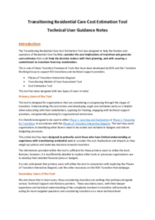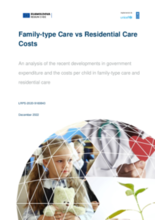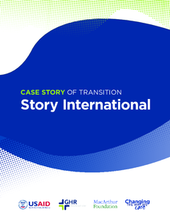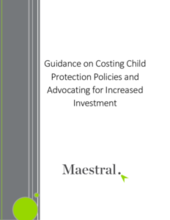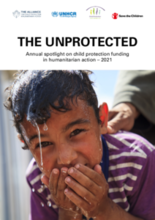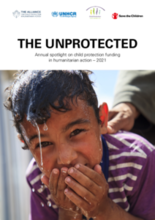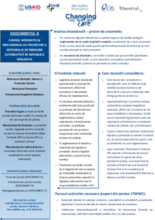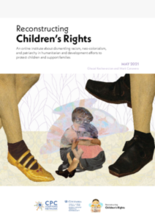Displaying 31 - 40 of 189
Throughout the Transitioning Residential Care Cost Estimation Tool, comments and tool tips have been provided for those Primary Users and for the basic use of the tool itself. This guidance provides additional context and explanation for Technical Users.
The objective of this analysis is to provide a better understanding of the government spending towards foster care and residential care services for children deprived of parental care, as well as to estimate the cost per child of such services. The analysis is intended to support UNICEF advocacy efforts towards the closure of residential care institutions in Moldova.
This case story is meant to illustrate transition, the actors involved, the challenges and the success factors; recognizing that each transition is an individual process with different starting points, different dynamics and different evolutions. Story International’s transition example demonstrates the ups and downs of divesting from the orphanage model.
This Maestral document aims to provide guidance on how to provide credible evidence and support for an increased budget for child protection policies and plans of action.
The Unprotected Series maintains an important spotlight on the resources needed and those available for child protection actors to provide essential and life-saving services across the humanitarian system.
Children make up 50% of those affected in humanitarian crises and are disproportionately impacted by conflict and crisis.
Cercetarea a vizat o analiză cuprinzătoare a cadrului juridic și de reglementare, conform Orientărilor ONU privind îngrijirea alternativă a copiilor, inclusiv o analiză a mecanismelor de finanțare pentru programarea serviciilor de îngrijire.
This session’s speakers discussed the funding ecosystem’s challenges and barriers and highlighted examples of how innovative funding mechanisms are reinventing donor giving by shifting resources and power closer to the children, young people, families, and communities they are meant to support.
Este seminario web es el segundo de una serie de la Plataforma de colaboración global Transforming Children's Care. En el seminario web, Philip Goldman de Maestral International presentó una nueva guía sobre gasto público y cuidado de los niños producida por Changing the Way We Care, que está diseñada para fortalecer la capacidad de las agencias gubernamentales en países de bajos recursos para preparar un marco presupuestario sólido.
The conversation of this webinar focused on the root causes of why there are millions of children globally growing outside of families, and discussed some of the proven ways of strengthening families and communities to provide a safe and nurturing environment for the world’s most at risk and vulnerable children.

